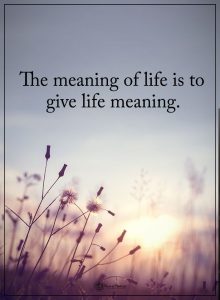《自律養生實踐家之旅312》 生命無限可能

每當聽聞有人選擇結束自己的生命,我們的第一反應總是驚訝與不捨:「他何苦想不開呢?」
在人生的旅途中,誰沒有陷入困境、難以自拔的時候?有時,是那一念「人生為何如此艱辛」的低潮,有時,是被比較、被羞辱後,無處宣洩的情緒。那一刻,人往往感到孤立無援。
輕生,某種程度上帶有宣示的意味,以死明志,是對生命的誤解,也是理智的崩潰。從生命的廣度來看,這是幼稚的表現,真正的成熟,應是跨過苦難後的覺悟與成長。
妻子離世後,我重新審視自己的人生。回首當時,那是一道深刻的關卡,卻也是讓我重新定義生命意義的重要轉折。她是我生命的養分,失去她之後,我能更專注於完成自己的人生課題。
人生難免犯錯,面對錯誤,是一段成長的歷程。有些錯,也許一生都難以彌補,但我們可以選擇不要一直困在懊悔的漩渦裡,或是逆向思考,超越困境。
若沒有錯誤的創業經驗,我不會擁有今天的醒悟。對我而言,犯錯是生命給予的珍貴禮物,我願意用餘生去償還與學習。
我的生命觀來自身心靈的整合,「事情到最後一定會變好」的領悟源自電影《金盞花大酒店(The Best Exotic Marigold Hotel)》的啟發。終於明白,艱困是生命的考題,辛苦是成長的必要過程,圓滿,終將會到來。
從《秘密》到《吸引力法則》,從《心想事成》到《快樂學》,我曾在迷惘中翻讀這些書籍。後來,透過「動機位置」的實踐,我一步步驗證法則的真實呈現。
每天被生活的急事追著跑,連靜下心閱讀與思考都成為奢侈時,我深知:真正該處理的,不是「兼顧」,而是「取捨」。
正如柯維所言:「最重要的事,就是讓最重要的事成為最重要的事。」這句話,引領我走出人生的迷宮,重新找回自己存在的核心。
「作繭自縛」常是我自省的鏡像,「自掘墳墓」則是我經常思考的隱喻。即使選擇輕生的人終究是少數,但輕視生命的行徑,卻無所不在。
當你為他人輕生而感嘆時,也該回頭看看自己是否真正尊重生命。成為人,已經是宇宙中難得的奇蹟,但我們卻常常忘了感恩,忘了去愛、去孝順、去回報。
我們把情緒視為理所當然,動怒變成常態,對人不和善變成習慣。而這些情緒,其實與輕生者內在的吶喊並無二致,都是對外界失望後的極端反應。
人生的困境,多源於我們從未釐清情緒的真面目。生氣,是一種對自我的傷害;暴怒,更像是一種慢性的自我毀滅。這不只是天知道的事,身體也知道。
「為何生氣」是一個值得自問的題目。情緒當下的答案與事後的思考,往往截然不同,因為立場改變,心境也改變,答案也就不同。
如果終將圓滿,如果所有衝突終將和解,那麼我們在那一刻的糾結與痛苦,又有何意義?執著於負面情緒,只是讓自己更不健康,何苦來哉?
這一生,我見過許多人的故事,在他們的跌宕起伏中,我讀懂了自己。
從祖父母到父母,再到事業有成的親友,甚至是那位我最疼愛、卻不相往來的弟弟,他們都是我的一面面鏡子,照出我生命的不同面向。
這些角色與事件,構成一齣齣無聲的舞台劇,有時讓人困擾、有時發人深省。但我明白,人生的債務從來不只是金錢,還有人情債、情緒債、關係債,這些都來自貪婪與傲慢。這些元素,深植於我所成長的家庭氛圍裡。
我感到慶幸,也真心感恩。雖然我沒有財富的滿載,卻擁有靈魂的豐盛。
誠如那句老話:「退一步,海闊天空」,不願成為金錢奴隸的我,反而發掘到能服務他人的志業。
只要追求有意義的生活,人生就能持續前行,太執著於生存,反倒困住了自己。
(生命的意義是賦予生命意義)
Life Holds Infinite Possibilities
Whenever we hear of someone who chooses to end their life, our first reaction is often shock and sorrow: “Why couldn’t they see another way out?”
In the journey of life, who hasn’t felt stuck, overwhelmed, or trapped in despair? Sometimes it’s the low point of wondering, “Why is life so hard?” Sometimes, it’s the bottled-up emotions after being humiliated or unfairly compared. In such moments, one often feels utterly alone.
Suicide, in a way, is a declaration—a cry for meaning through death. But it stems from a deep misunderstanding of life and a collapse of reason. From the broader perspective of life, it is an immature act. True maturity is found in the awakening and growth that follows suffering.
After my wife passed away, I reevaluated my life. Looking back, it was a painful ordeal—but also a turning point that redefined the meaning of my existence. She was the nourishment of my soul, and losing her helped me focus more intently on fulfilling the life lessons I still had to learn.
Mistakes are inevitable. Facing them is part of growing. Some mistakes may never be fully amended, but we can choose not to dwell forever in regret—we can rise beyond adversity by thinking differently.
Without my failed business ventures, I wouldn’t have gained today’s clarity. To me, mistakes are sacred gifts from life. I’m willing to spend the rest of my days repaying what I owe and continuing to learn.
My philosophy of life is rooted in the integration of body, mind, and spirit. The belief that “everything will be okay in the end” was deeply affirmed by the film The Best Exotic Marigold Hotel. I finally understood that hardship is life’s test, that pain is a necessary part of growth—and that fulfillment will arrive, eventually.
In my moments of confusion, I once turned to books like The Secret, The Law of Attraction, Ask and It Is Given, and The Happiness Project. Later, through the practice of understanding “motivational positioning,” I began to witness these principles manifest in reality.
When life keeps us busy with constant urgency, even pausing to read or reflect feels like a luxury. In those moments, I realized that what needs to be managed is not balance, but prioritization.
As Stephen Covey said, “The main thing is to keep the main thing the main thing.” That one line helped me step out of the maze of confusion and reconnect with the core of my existence.
“Trapped in a cocoon of our own making” is a mirror I often use for self-reflection. “Digging my own grave” is another metaphor I revisit. Although few may choose suicide, the acts of disregarding life are all around us.
If you find yourself mourning someone who took their own life, it’s also worth asking: Have I truly respected my own life? To be born human is already a rare cosmic miracle—yet we often forget to be grateful, to love, to honor our parents, to give back.
We take our emotions for granted. Anger becomes habitual, unkindness becomes routine. Yet these emotions are not far from the inner cries of those who end their lives—they are simply different expressions of the same despair after losing hope in the world.
Most of life’s suffering stems from not understanding our emotions. Anger is self-harm; rage, a slow form of self-destruction. And this is not just metaphorical—the body knows it too.
“Why am I angry?” is a question worth asking. The answer in the heat of the moment is often very different from the one found in calm reflection. As our perspective shifts, so too does our emotional truth.
If everything is destined to find peace in the end, if all conflicts will eventually be resolved, then what meaning do our moments of entanglement and pain really hold? Clinging to negativity only makes us more unwell—is it really worth it?
In this lifetime, I’ve witnessed many people’s stories—and through their highs and lows, I’ve come to understand myself better.
From my grandparents and parents to successful friends and relatives—even to the brother I loved deeply but no longer speak with—each of them has served as a mirror, revealing different facets of my life.
These people and events make up silent dramas on the stage of my life. Some are troubling, some enlightening. But I’ve come to see: life’s debts are not just financial. There are debts of emotion, kindness, and relationship—all born from greed and pride. These traits were deeply ingrained in the atmosphere I grew up in.
Yet I feel fortunate, and truly grateful. Though I may not possess material abundance, I carry a richness of soul.
As the old saying goes, “Take a step back, and the sea widens; the sky clears.” By refusing to become a slave to money, I discovered a calling—one that allows me to serve others.
As long as we pursue a meaningful life, the journey continues. Ironically, it is our obsession with survival that traps us the most.


